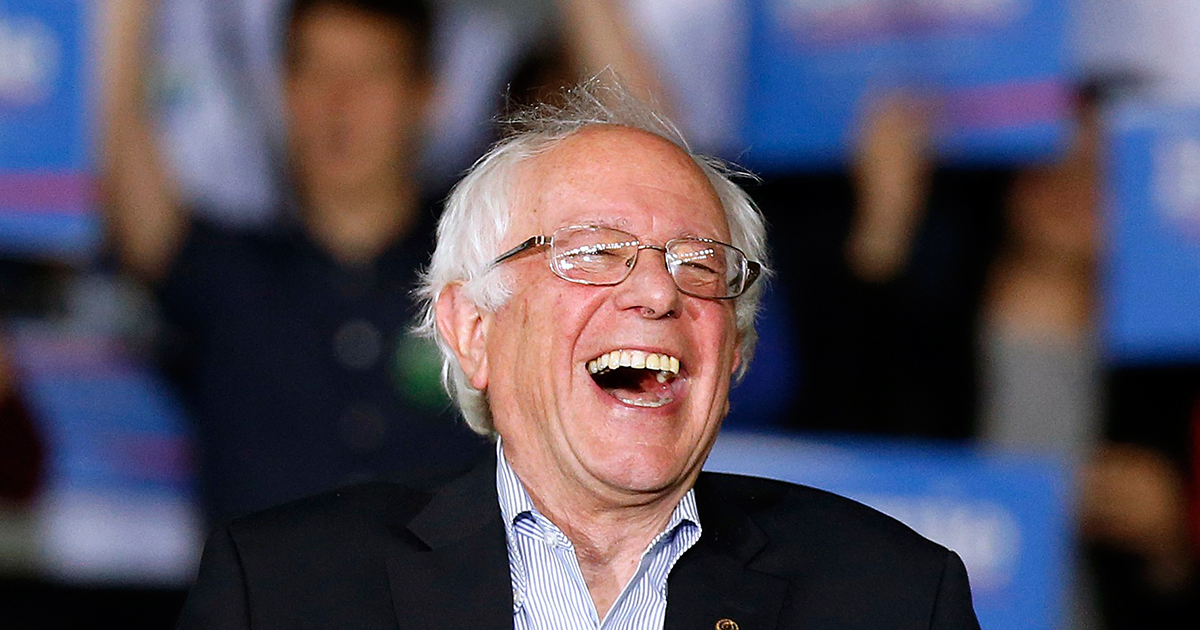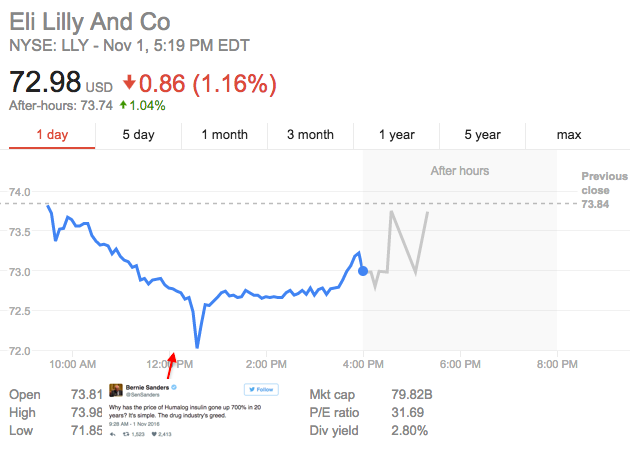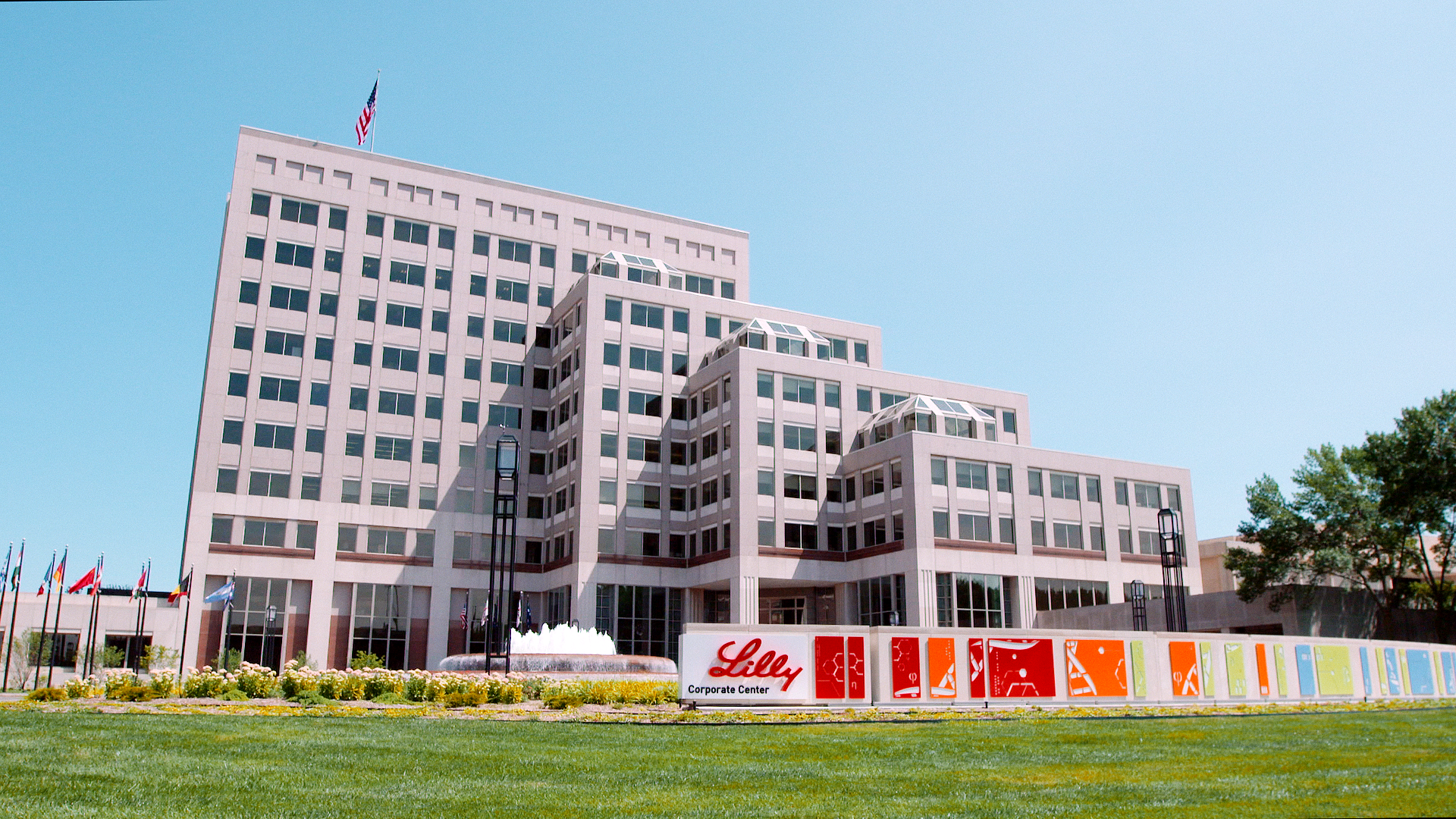Why Bernie Sanders Slammed This Drug Company

By:
Vermont Sen. Bernie Sanders' latest critical tweet about the pharmaceutical industry appears to have caused shares of a drug company to briefly dip on Tuesday. Sanders blamed the "drug industry's greed" for the gradual price hike of Eli Lilly's diabetes medication, Humalog, linking to a report from The Washington Post.
 AP/Michael Dwyer - apimages.com
AP/Michael Dwyer - apimages.com
The price of Eli Lilly's insulin product — which is used to help diabetes patients manage blood sugar — has increased by about 700 percent (after adjusting for inflation) since 1996, the Post found. In that time span, the drug's price has increased more than two dozen times, with the cost of a vial rising from $21 to $255. The drug company argues that the increased price is the result of improvements it's made to Humalog, according to the Post.
In a tweet, Sanders pushed back against that argument. He said the reason for Humalog's price increases was "simple" — the company has put profits ahead of patients.
"Sanders tweeted his disapproval of the price of Humalog at 12:28 p.m. ET," The Huffington Post reported. "Immediately after, the price of an Eli Lilly share quickly went from $72.71 to $72.05 in fewer than 10 minutes." (The stock recovered shortly thereafter.)
 Google Finance - google.com
Google Finance - google.com
Here's what we know about the pricing of Humalog.
Eli Lilly and other drug companies that sell versions of insulin have made a series of improvements to the drug. One of the most significant changes has been the replacement of animal-derived insulin with "a genetically engineered human version with fewer side effects," according to the Post.
 Eli Lilly - lilly.com
Eli Lilly - lilly.com
That improvement happened in 1982. Since then, there haven't been comparable, revolutionary changes to the product.
Some experts argue that Eli Lilly and other insulin makers are making small "improvements" that have little impact on the drug's efficacy in order to extend their patents on the products, reducing competition and increasing profits. By extending patents, drug companies are granted exclusive rights over the sale of their products, preventing other companies from developing cheaper, generic version. This also gives drug companies leeway to set prices as they see fit.
"I don’t think it takes a cynic such as myself to see most of these drugs are being developed to preserve patent protection," Harvard Medical School professor David Nathan told the Post. "The truth is they are marginally different, and the clinical benefits of them over the older drugs have been zero."
How do higher drug prices affect patients?
For many Americans with health insurance — especially low-income patients who qualify for financial assistance programs — there are minimal out-of-pocket costs for medications. Eli Lilly says that the list price of Humalog fails to account for discounts and rebates offered by some insurers and drug companies — that a more accurate figure for the price of the drug would be its net price, which includes the cost after rebates.
The problem with that defense is that it doesn't account for rising copay costs — due, in part, to rising drug costs in the pharmaceutical industry — which have increased by about three percent since 2014, The Wall Street Journal reported. Also, patients without insurance, or whose insurance doesn't cover certain medications, still have to pay the full list price for Humalog.
In a statement emailed to ATTN:, Eli Lilly suggested that low revenue from Humalog was partly to blame for the increased list price.
"A permanent solution that gives everyone who uses insulin reasonable access will require leadership and cooperation across many stakeholders, including manufacturers, (pharmacy benefit managers), payers, and policymakers. That’s because the answer itself isn’t simple. For instance, while the list price for Humalog has gone up, Lilly actually receives a lower average net price now than in 2009. When Lilly released third quarter earnings on October 25, the biggest miss noted was Humalog, whose US revenue fell 14 percent, driven by a 24 percent decline in net price."
